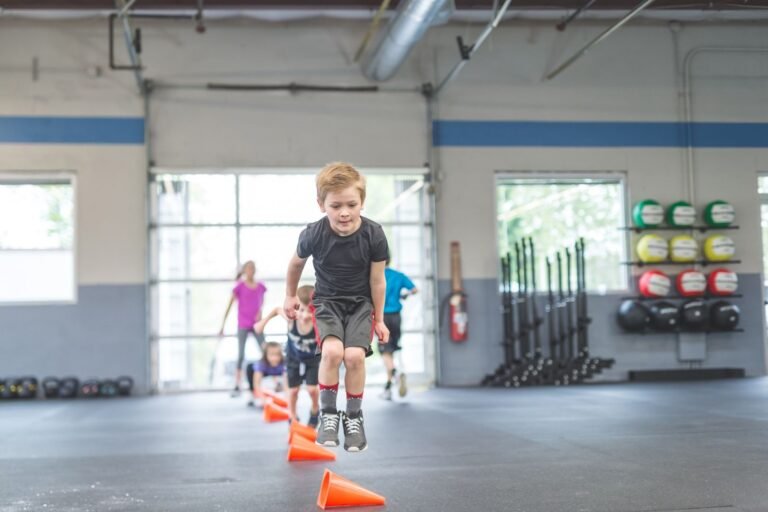Participating in sports provides children with several advantages for their development that go beyond only physical fitness to include social and emotional growth. The several methods in which sports help children’s social development is cover in this article.
Enhancing Cooperation and Teamwork
Team sports such baseball, basketball, and football call on participants to cooperate toward a shared objective. Children learn the value of cooperation, communication, and mutual support by means of this joint goal. Children that participate learn to appreciate the efforts of every team member, therefore promoting togetherness and belonging. This cooperative attitude not only helps on the field but also shows in other spheres of life, including family and education.
Promoting Effective Communication
Sports depends on good and effective communication. Youngsters learn how to express their thoughts clearly, listen attentively to their peers, and get to peaceful resolution of problems. Their nonverbal as well as verbal communication abilities get keen from this ongoing connection. Moreover, sports help youngsters to handle feedback constructively, whether they are compliments or criticism, therefore improving their capacity for communication in different situations.
Teaching Fair Play and Emotional Management
Fair play and respect of others are taught by sports. Youngsters pick up graceful celebration of successes and resiliency in accepting losses. One important lesson is in controlling emotions including disappointment, frustration, and anger. In sports, both wins and losses assist kids grow emotionally intelligent so they can better handle ups and downs in life.
Building Positive Relationships
Children can find a great platform in sports to create good relationships and friendships. Sports’ shared events and hardships develop close relationships among peers. Many times, these ties go beyond the field of play and help to build mutual respect and a community. A lot of friendships develop and get fostered by sports.
Encouraging Responsibility and Leadership
Children that participate in sports develop feelings of responsibility. They pick up the value of consistency, timeliness, and ownership of the condition of their equipment. Sports present many of leadership opportunities as well. Whether to be a lead in a practice session or a game, these situations help to develop confidence and leadership abilities. Youngsters pick up useful skills in many spheres of life: initiative, decision-making, and leadership.
Enhancing Self-Esteem and Confidence
Children’s confidence and self-esteem are very much raised by regular sporting activity. Reaching either team or personal goals makes one feel successful. Children that get this positive reinforcement are motivated to aim higher and pursue excellence. The confidence acquired in sports typically infuses social contacts and academic success, therefore promoting general personal growth.
Promoting Inclusivity and Diversity
Children from many backgrounds come together in sports to foster inclusiveness and understanding. Children who play in diverse teams come to value different perspectives and cultures. In our world, global citizenship and empathy are fostered by this inclusivity. Children learn to value and appreciate diversity by means of sports, which is crucial for societal harmony.
Social and Emotional Development through Sports Camps
Sports camps are great events for helping to improve social skills. These camps give kids a disciplined setting where they can learn leadership, communication, and teamwork as well as social skills. Sporting camps’ activities are meant to push kids outside their comfort zones and challenge them, therefore fostering personal development as well as social ones. Sports camps’ immersion character speeds up the learning process, hence they are a great instrument for kids social development.
The Role of Coaches and Mentors
Through sports, coaches and mentors significantly contribute to children’s social growth. They act as models, helping youngsters to acquire respect of others, good sportsmanship, and collaboration. By helping a youngster to view sports and social events differently, a supportive coach creates a conducive environment for development. Coach mentoring helps kids know more about the challenges of sports and life, therefore developing resilience and character.
Community and Parental Involvement
Children’s social development is enhanced more by parents’ and community participation in their sports events. Children can participate in sports in a safe and encouraging surroundings thanks to community sports programs. Parental participation—from sidelines cheers to volunteer work—helps to underline the significance of sports and the lessons they teach. Children’s whole development benefits from this combined support system since it helps them feel motivated and appreciated.
Conclusion
Sports play a very significant part in children’s social development. From improving communication and teamwork to teaching fair play and strengthening good relationships, sports give kids vital life lessons. Encouragement of youngsters to engage in sports can result in their whole personal growth, therefore producing well-rounded people ready to deal with problems of the future. The several advantages of sports highlight the need of including physical exercises into daily life for children.





